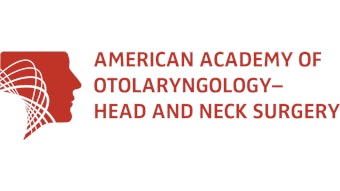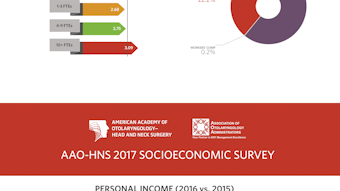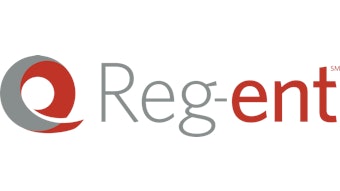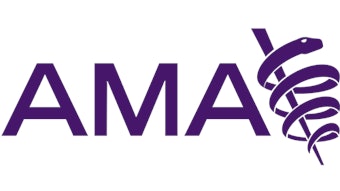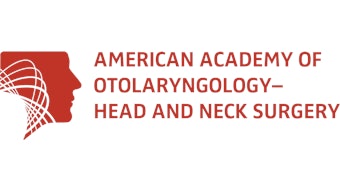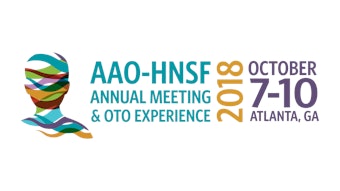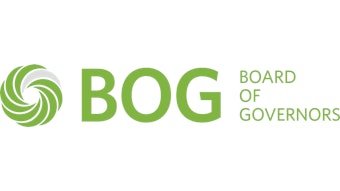The benefits of participating in the Reg-ent℠ registry
We enjoyed seeing so many of you at last month’s Annual Meeting in Chicago, IL. We hope that you were able to attend the Reg-ent Miniseminar, The Evolution of Measurement, and stop by the Reg-ent booth.
Reg-ent participation: the Value 4U and for the specialty
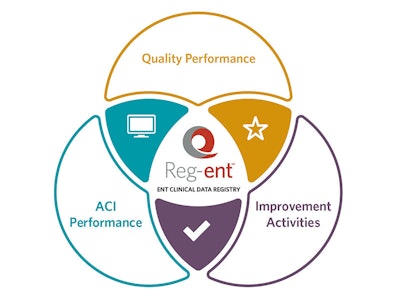
The benefits of participation in the registry are numerous—some are available now, others are in development for the future. Whether you are a solo practitioner, a large group private practice, or an academic medical center, there are many benefits to participating in the registry that apply directly to you.
Reg-ent was established by the Foundation to be the first repository of otolaryngology-specific data. This collective data will be used to guide the best ENT care.
The initial phase of Reg-ent was establishing the quality performance reporting functionality. Having received CMS designations as both a Qualified Registry (QR) and Qualified Clinical Data Registry (QCDR) in the registry’s inaugural year, Reg-ent was able to successfully report PQRS 2016 data. The Reg-ent registry again received QR and QCDR designations from CMS in 2017, which allows members to report MIPS 2017 through Reg-ent. For 2017, Reg-ent supports not only the Quality Performance category reporting, but also the Advancing Care Information (ACI) and Improvement Activities (IA) reporting categories for MIPS 2017.
While the registry’s primary data repository is built from the electronic integration of data from our members’ EHRs, the Foundation recognizes that many of our members in need of a MIPS-reporting solution are paper-based practices. Therefore, Reg-ent made a web entry tool available to our members who signed contracts by October 3, 2017. This web entry tool is also available to Reg-ent participants with EHRs from vendors that have yet to provide sufficient, reliable data electronically to the registry, or in some cases, provided no data at all.
To support the growth of the registry and to support our members at the practice level, the Foundation and the Reg-ent team continue to work with EHR vendors to improve the quality of the data provided to the registry—or in the cases where no data has been shared to date, encourage them to do so. FIGmd, Reg-ent’s registry vendor partner, is also working globally with these same EHR vendors on behalf of the registries FIGmd powers. Progress continues to be made.
At the individual provider level, another benefit of Reg-ent participation is meeting Maintenance of Certification (MOC) requirements. The AAO-HNSF is working with the American Board of Otolaryngology (ABOto) to have Reg-ent participation assist members with meeting MOC. We look forward to having updates on these capabilities soon.
It takes time to grow a registry in terms of participants and collected data. The Foundation intentionally planned the registry to be rolled out in a phased manner, with some functionality and benefits available immediately and other functionality developing over time.
MIPS reporting and MOC are important functionalities of the registry, necessary for many of our members, which is why reporting comprises the first phases. However, Reg-ent is more than a reporting tool. It is and will continue to become a national repository of otolaryngology-specific data that will assist in quality measures development, testing, and validation, leading to more relevant and meaningful measures.
As the registry collects data from our members across the country, Reg-ent’s otolaryngology data will grow and represent an accurate and reliable resource for research purposes. The potential to use the data to make improvements to the care and outcomes of patients is infinite. The data repository can be used for quality improvement at the provider and practice levels as well as to support discussions with private and public payers regarding quality of care provided.
The power of the registry is in the data it collects and stores—data from our members and their practices. As practicing otolaryngologists-head and neck surgeons, each of our members has data that is needed to develop the database that will support the improvements in otolaryngology care as defined by the specialty. Building the data repository depends on participation from our members. That means you! We need our members to invest in the future of the Reg-ent registry and the specialty now.
To learn more about Reg-ent and to join, please visit www.Reg-ent.org. If you have questions regarding Reg-ent participation, you can email the Reg-ent team at Reg-ent@entnet.org.

